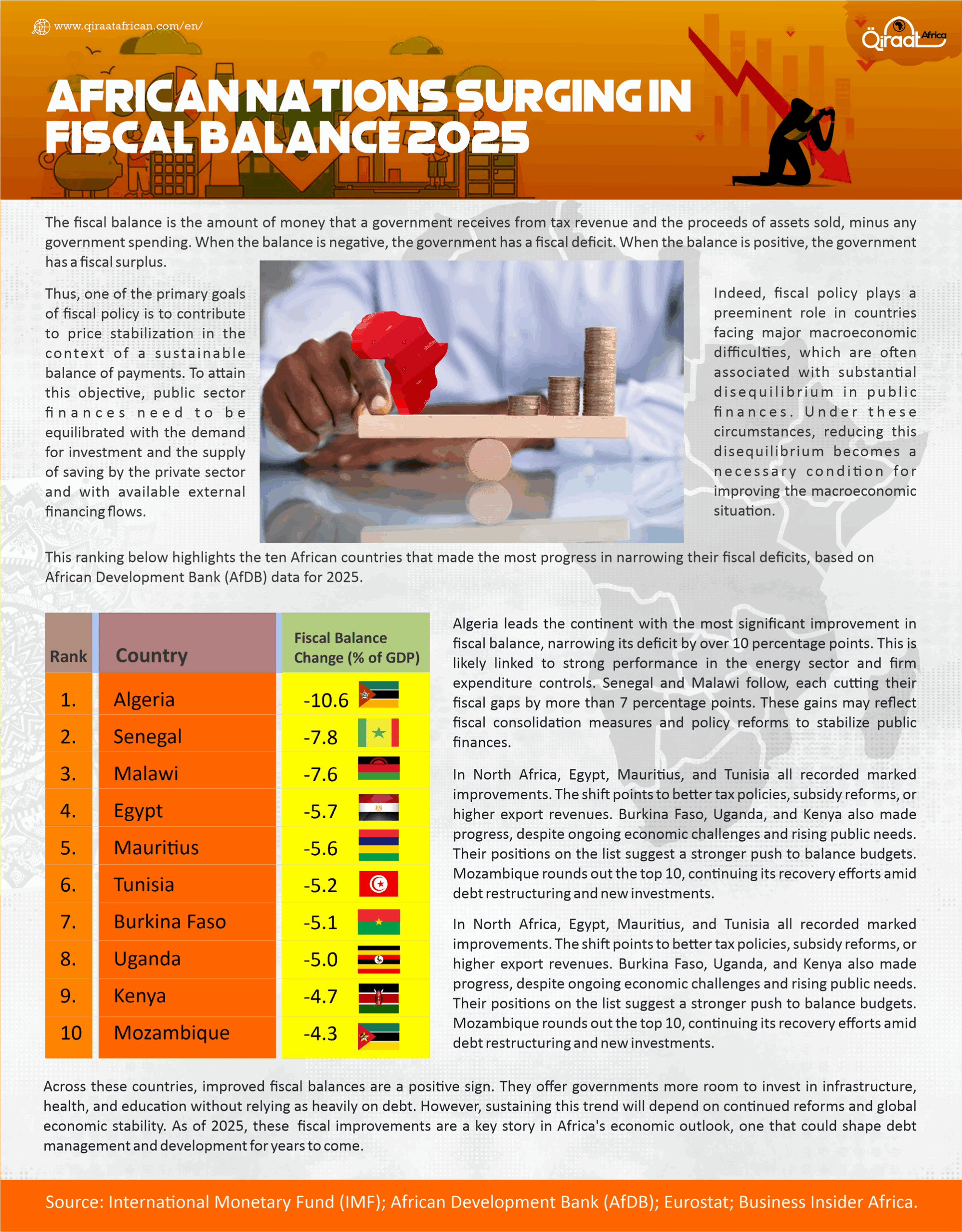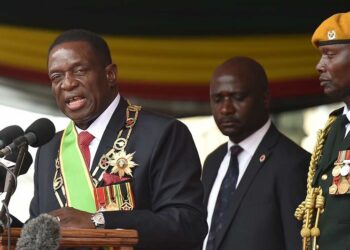The fiscal balance is the amount of money that a government receives from tax revenue and the proceeds of assets sold, minus any government spending. When the balance is negative, the government has a fiscal deficit. When the balance is positive, the government has a fiscal surplus.
Thus, one of the primary goals of fiscal policy is to contribute to price stabilization in the context of a sustainable balance of payments. To attain this objective, public sector finances need to be equilibrated with the demand for investment and the supply of saving by the private sector and with available external financing flows.
Indeed, fiscal policy plays a preeminent role in countries facing major macroeconomic difficulties, which are often associated with substantial disequilibrium in public finances. Under these circumstances, reducing this disequilibrium becomes a necessary condition for improving the macroeconomic situation.

This ranking below highlights the ten African countries that made the most progress in narrowing their fiscal deficits, based on African Development Bank (AfDB) data for 2025.
Rankings of Top 10 African Countries by Fiscal Balance Improvement (2025)
| Rank | Country | Fiscal Balance Change (% of GDP) |
| 1 | Algeria | -10.6 |
| 2 | Senegal | -7.8 |
| 3 | Malawi | -7.6 |
| 4 | Egypt | -5.7 |
| 5 | Mauritius | -5.6 |
| 6 | Tunisia | -5.2 |
| 7 | Burkina Faso | -5.1 |
| 8 | Uganda | -5.0 |
| 9 | Kenya | -4.7 |
| 10 | Mozambique | -4.3 |
Algeria leads the continent with the most significant improvement in fiscal balance, narrowing its deficit by over 10 percentage points. This is likely linked to strong performance in the energy sector and firm expenditure controls. Senegal and Malawi follow, each cutting their fiscal gaps by more than 7 percentage points. These gains may reflect fiscal consolidation measures and policy reforms to stabilize public finances.
In North Africa, Egypt, Mauritius, and Tunisia all recorded marked improvements. The shift points to better tax policies, subsidy reforms, or higher export revenues.
Burkina Faso, Uganda, and Kenya also made progress, despite ongoing economic challenges and rising public needs. Their positions on the list suggest a stronger push to balance budgets. Mozambique rounds out the top 10, continuing its recovery efforts amid debt restructuring and new investments.
Across these countries, improved fiscal balances are a positive sign. They offer governments more room to invest in infrastructure, health, and education without relying as heavily on debt. However, sustaining this trend will depend on continued reforms and global economic stability. As of 2025, these fiscal improvements are a key story in Africa’s economic outlook, one that could shape debt management and development for years to come.
ـــــــــــــــــــــ
* Source: International Monetary Fund (IMF); African Development Bank (AfDB); Eurostat; Business Insider Africa.


























































